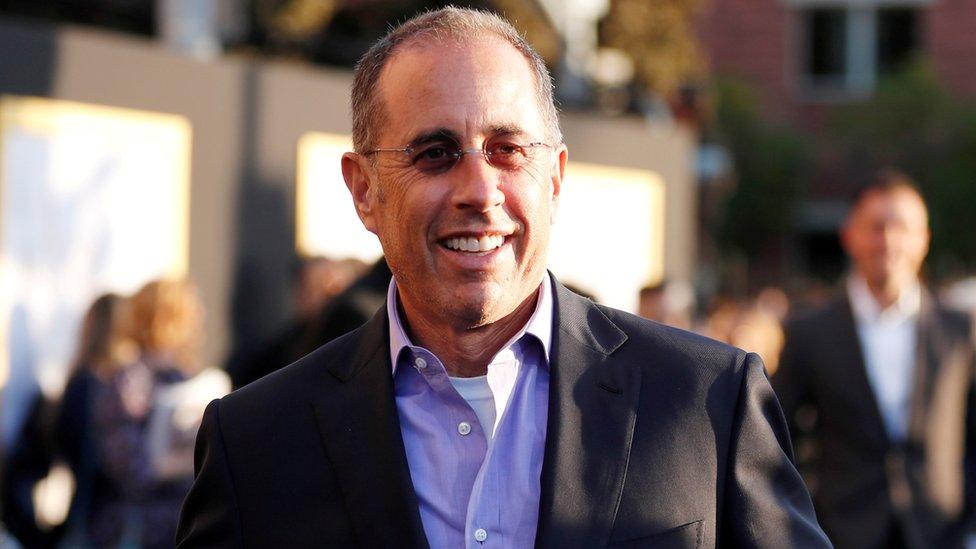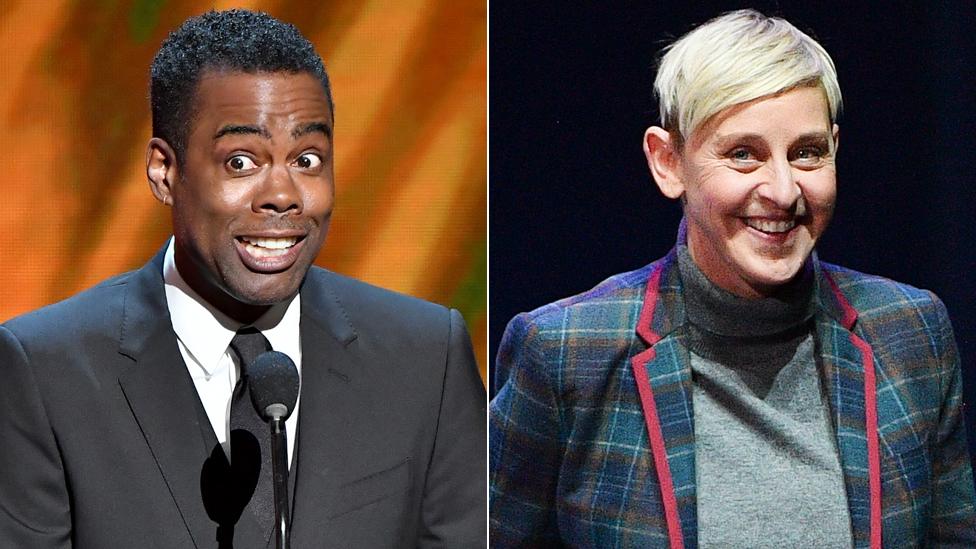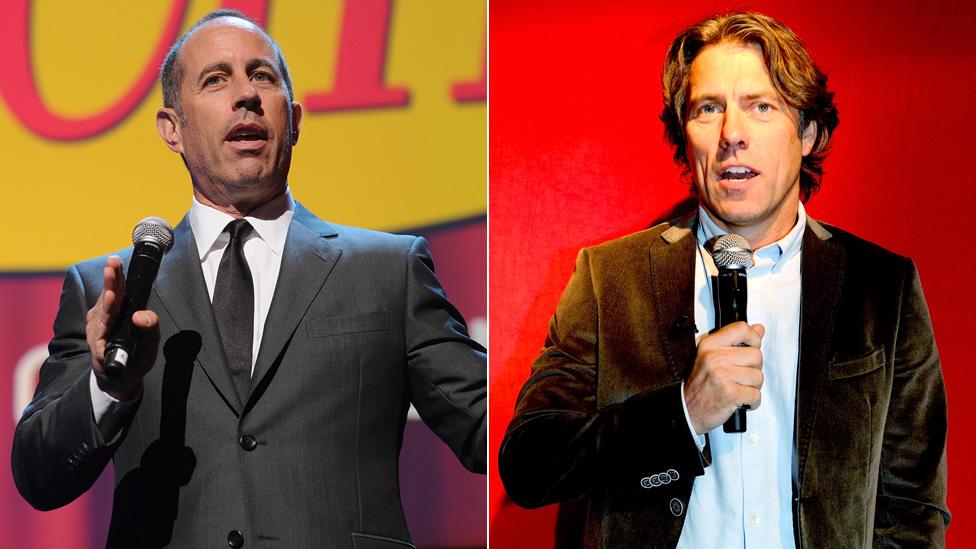Jerry Seinfeld wins copyright lawsuit over Comedians in Cars Getting Coffee
- Published

Jerry Seinfeld's series Comedians in Cars first aired in 2012
US comedian Jerry Seinfeld has defeated a lawsuit which alleged he had stolen the idea for a TV series.
A former colleague claimed he had originally pitched the idea for Comedians in Cars Getting Coffee.
Christian Charles said he had first suggested the format to Seinfeld in 2002 - a decade before it debuted.
But Manhattan District judge Alison Nathan said Charles had taken too long to sue, as the statute of limitations was three years.
Charles had waited for six years to file his lawsuit after Seinfeld rejected his copyright claim in 2012, the year the first series of the show aired.
"Today's victory is a complete vindication," Seinfeld's lawyer, Orin Snyder, said in a statement. "Jerry created Comedians in Cars and this lawsuit was nothing but a money-grab seeking to capitalise on the success of the show. We are pleased that the court saw through the noise."
Charles claimed his proposed project, Two Stupid Guys in a Stupid Car Driving to a Stupid Town, was pitched in 2002 to Seinfeld, with whom he had worked since 1994.
The pilot for Comedians in Cars was directed by Charles in October 2011, but the pair's relationship was said to have broken down after Charles sought more credit and compensation than Seinfeld wanted to give.
"We are, of course, disappointed," Peter Skolnik, a lawyer for Charles, said in a statement to Reuters. He also criticised Seinfeld's alleged "egregious, shabby conduct".

Chris Rock and Ellen Degeneres have both appeared on Comedians in Cars
Comedians in Cars Getting Coffee sees a different guest comedian join Jerry Seinfeld in a vintage car each episode.
Together, the pair go for a drive, record their conversations, and stop for coffee in a pre-selected restaurant or cafe.
Guests have included Chris Rock, Ricky Gervais, Tina Fey, Kevin Hart and Ellen DeGeneres. However, non-comedians have occasionally appeared too, such as former US president Barack Obama.
The show began broadcasting on Sony's digital network Crackle, but moved to Netflix last year, for its 10th season.
"Charles believed that 'Seinfeld would eventually acknowledge Charles' authorship and ownership and bring him in,'" Judge Nathan wrote, quoting from the complaint.
"Because Charles was on notice that his ownership claim had been repudiated since at least 2012, his infringement claim is time-barred."

Follow us on Facebook, external, on Twitter @BBCNewsEnts, external, or on Instagram at bbcnewsents, external. If you have a story suggestion email entertainment.news@bbc.co.uk, external.
- Published21 October 2015
